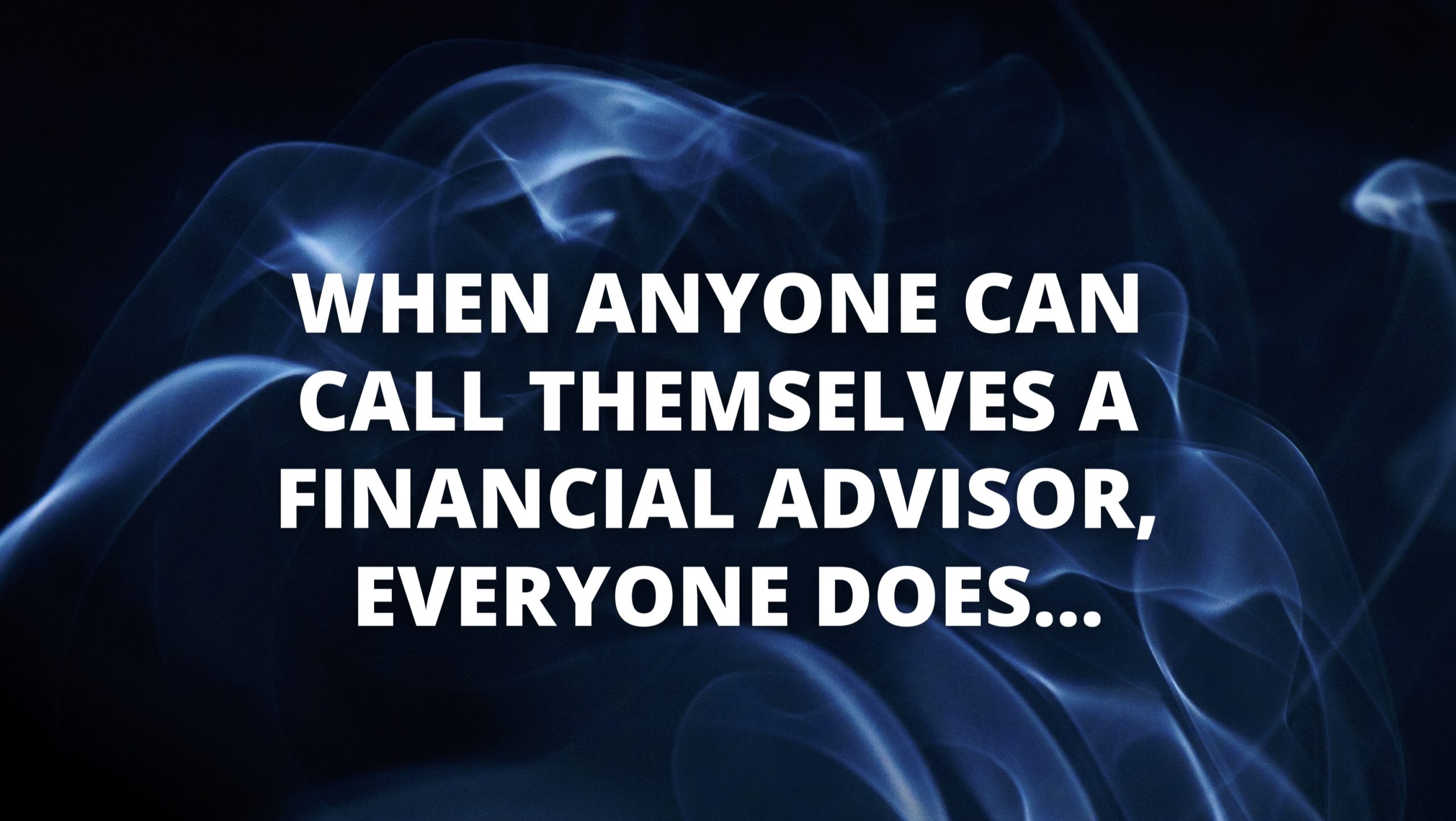What kind of advisor do you have? And by that, I’m asking what KIND of advisor do you have?
Looking at a title or what they call themselves on a business card, a website bio, or in conversation will never really tell you.
And that’s because when ANYONE can call themselves a financial advisor, EVERYONE does.
To know the difference, you may have to read between the lines. Here are two different hypothetical responses to a general client concern over the current market selloff that sounds something like this:
Client:
This is really scary. All I see is my portfolio going down and everyone predicting a recession. Inflation is up, gas is so expensive, interest rates are going up, and I’m worried this could get a lot worse. Shouldn’t we be doing something?
Advisor One:
I’m really glad you reached out because the last thing I’d want is for you to spend a ton of time letting this worry you without calling me. I understand where you are coming from; frankly, the news I’m seeing is worrisome too.
So if you are worried and this is keeping you up at night, we should definitely do something. The market is down 20%, and if that has you nervous and it goes down 30%, it will feel even worse.
Here’s what we should do…let’s sell some of your stocks and raise cash. That way, if the market gets worse, you are protected. We should take some of that cash and buy some protection. We can use some structured notes, and maybe now is the right time to look at some whole life insurance.
Another thing we should do is take a look at some non-traded investments, that way, you won’t see the balances go down since they aren’t traded every day but still get some dividend payments.
How about we also take a look at some of the alternative investments I have access to? They are designed to do better in up markets but protect you on the downside.
Finally, we can hire a great third-party money manager who runs an options overlay strategy designed to protect your portfolio and generate some income.
Advisor Two:
I’m really glad you reached out because the last thing I’d want is for you to spend a ton of time letting this worry you without calling me. I understand where you are coming from; frankly, the news I’m seeing is worrisome too.
But before we get to what we’re going to do, let’s step back and confirm a few things first. I want to ensure that even though the market has dropped, nothing has changed from the last time we chatted about the question, “What’s the money for?”
Money can only go one of four places – you can spend it during your lifetime, and to the extent that there is anything left after you die, it can go three other places…friends and family, charity, and in some cases, taxes.
Remember, we built your investment portfolio based on the answer to that question and your decisions on the four places you want the money to go. The portfolio was designed to give us the greatest likelihood of funding those four things with the least amount of risk we could take.
I’ve gotta tell you, unless something has changed, there is nothing we should adjust. Our strategies are all acting together precisely the way we would expect them to in this environment.
When we built your portfolio, we used the evidence of history to make those decisions along with rigorous modeling of probabilities of success that incorporated selloffs like this.
That means we know how the market has performed in the past, and we even knew when we built this portfolio that it would go down. We just didn’t know when.
But now is one of those times. And based on everything I know today, this portfolio is still exactly what I’d recommend for you. So if it’s OK with you, I would have no problem just staying exactly where we are.
It’s me again, Dave. Please think about the conversations you are having and make sure they are the ones you want to be having.
I think one is better than the other, and you can guess which one that is.
Here’s what you should (always) know:
- Always have the right portfolio for tomorrow rather than the portfolio you wish you had when the selloff started
- Always have an investment strategy that is ready for A RECESSION and not one that needs you to guess about THE RECESSION
- Know what the money is for and when you need it – don’t risk what you already have and need for what you don’t have and don’t need
- It’s best to be financially unbreakable – that means having enough cash reserves on hand, so you don’t have to raise money when markets are going through a drawdown
I’ll sign off with this…the last thing anyone at Monument wants is for you to spend a ton of time letting this worry you without calling us. We understand where you are coming from, and frankly, the news we are seeing is worrisome too.
But we will want to step back and confirm a few things first. We want to ensure that even though the market has dropped, nothing has changed from the last time we chatted about the question, “What’s the money for?”
If you missed any of the other blogs I’ve written his week about inflation and dorks, they are here and here.
Keep looking forward.



